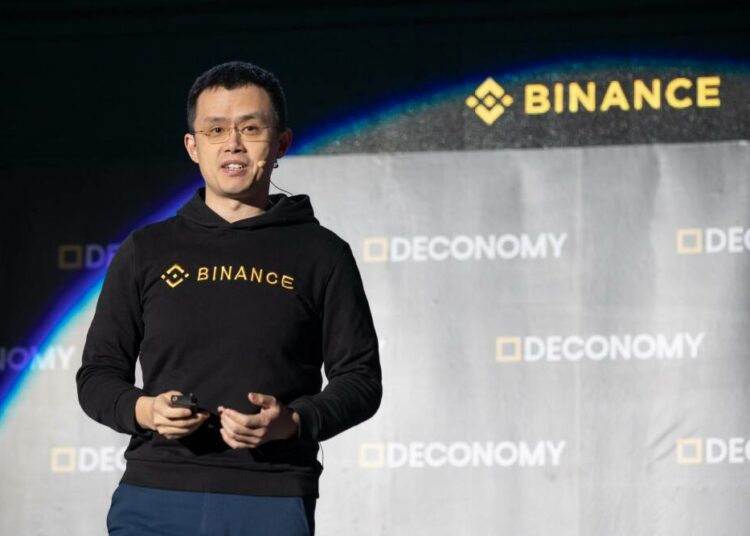Binance CEO Changpeng Zhao’s recent comment about his intention to introduce an algorithmic stablecoin into the crypto market has sparked significant discourse. A key contribution to this ongoing conversation comes from Adam Cochran, an esteemed fintech executive and business analyst.
Cochran recently released a comprehensive outline, suggesting potential methodologies for launching an algorithmic stablecoin. Cochran’s in-depth exploration of this topic comes in response to Zhao’s concerns about the risks associated with larger stablecoins like Tether (USDT) and Binance USD (BUSD).
Response To CZ’s Algorithmic Stablecoin Proposition
In a recent Ask Me Anything (AMA) session, Zhao openly discussed his apprehensions about the opacity of the Tether platform, expressing uncertainty about the asset’s auditing process.
Related Reading: Binance Records New User Base Milestone Amidst Regulatory Troubles
CZ noted in the Twitter Space:
I personally have not seen any audit reports of USDT. I don’t think most people I spoke to have seen that either. So it’s kind of a black box because we just don’t know.
In response to Zhao’s aspirations for algorithmic stablecoins, Cochran outlined a potential strategy for the debut of these coins on Twitter. He suggested that an exchange, looking to bring an “algo stable” to its platform, could rival existing stablecoins, sidestepping the need for them to deviate from their peg.
Partnering with smaller, less reliable “offshore stables,” such as TUSD and FDUSD, could provide a launching pad for the algorithmic stablecoin, according to Cochran. He suggested that enabling free trading and leverage on the exchange would bolster the stablecoins.
Afterward, the platform could transform substantial acquisitions of ETH and BTC into USDC, leading to a contraction in the stablecoin’s market capitalization due to significant outflows. The next stage, as delineated by Cochran, involves cycling these assets back into the exchange.
Potential Market Impact And Cochran’s Strategy
Cochran elaborated that the reinforcement of this loop followed by the selling of stablecoins could sustain the storyline. He emphasized the importance of stockpiling a more susceptible stablecoin such as DAI, where the procedure is reiterated, and the momentum of the crypto market could be altered.
Thinking about it, if you were a big exchange who wanted to launch your own algo stable like CZ admitted, you don’t need others to depeg… you can still attack them:
1. Partner with fake sketchy offshore stables (TUSD, FDUSD)
2. Give them free trading + leverage on your…
— Adam Cochran (adamscochran.eth) (@adamscochran) August 4, 2023
Related Reading: Strike Back: Binance Denies 20% Staff Cut Allegations, Calls It ‘FUD’
Cochran advised, “If you nuke DAI, the pools will get lopsided on Curve after you sell and in that dislocation, you can sell your spiked holdings back, minimizing your overall expenses.” This strategy, he suggests, could make the process more cost-effective while also capitalizing on market fluctuations.
Featured image from Binance, Chart from TradingView
